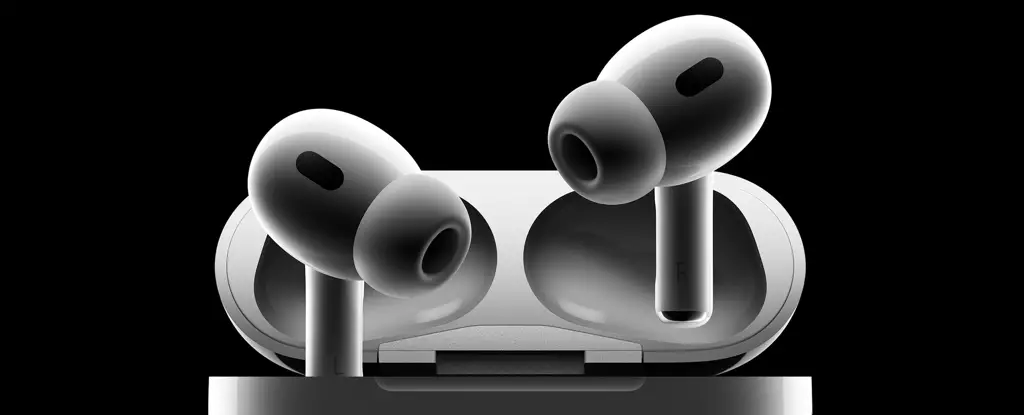In a landmark decision, the U.S. Food and Drug Administration (FDA) has approved a groundbreaking feature for Apple’s AirPods Pro, enabling them to function as hearing aids. This decision, announced on a Thursday, represents a significant shift in how technology and healthcare can intersect, potentially revolutionizing the hearing aid market. The decision comes at a time when hearing loss afflicts millions of Americans, and Apple’s move aims to make auditory assistance widely available and user-friendly.
Traditionally, hearing aids have often been considered expensive medical devices requiring professional fitting and ongoing maintenance. They are typically associated with clinical settings, which can discourage individuals from pursuing treatment. Here, Apple’s AirPods Pro, with a retail price of $249, offer a compelling alternative. With this cost-effective design, the technology giant is directly addressing the accessibility of hearing aids, positioning itself as a key player in addressing public health concerns surrounding hearing loss.
The FDA confirmed in its findings that users reported that the AirPods Pro performed comparably to standard hearing aids, fortifying the argument that innovative technologies can make significant contributions to health and wellness. Michelle Tarver, the acting director at the FDA, emphasized the crucial role of this technology in improving the quality of life for adults experiencing mild to moderate hearing loss.
One of the most impressive aspects of the upcoming software upgrade is the hearing test feature, which facilitates personalized auditory experiences. Users can engage in a five-minute assessment through their iPhone or iPad, where they will respond to different tones and frequencies. Once completed, this assessment crafts a unique hearing profile tailored to the individual’s auditory needs.
What differentiates Apple’s approach is the seamless integration of this profile into all types of content – be it music, phone calls, or movies. Unlike conventional hearing aids, which often require manual adjustment for different scenarios, the AirPods will automatically apply a user’s hearing profile universally across devices, offering a truly streamlined listening experience.
Apple’s venture into the auditory health sector is not merely a case of introducing a new feature; it reflects a broader commitment to integrating health and wellness into its product ecosystem. This endeavor involves creating health-related functionalities that extend beyond mere fitness tracking. Apple’s existing tools, such as the Apple Watch, provide users with critical health insights – from monitoring heart rates to alerting users of irregular rhythms or even potential sleep apnea.
These features are indicative of an overarching trend: the convergence of technology, health, and daily life. By encoding health functionality into devices that people already own and use regularly, Apple is working to normalize health monitoring, making it a part of everyday life rather than a specialized practice.
Industry leaders and advocates within the hearing loss community have responded positively to Apple’s innovations. Barbara Kelley, the executive director of the Hearing Loss Association of America, emphasized the significance of making hearing assistance more accessible. This sentiment resonates with a widespread anticipation that such advancements could provide help for those who have previously felt overlooked or underserved by traditional hearing aid solutions.
The potential expansion into over 100 countries also underscores the import of regulatory backing, suggesting that Apple is committed to adhering to health authority standards worldwide. If successful, Apple could be setting a precedent for others in the tech industry to develop similar health-focused adaptations.
Apple’s announcement marks an auspicious entry into hearing health technology, reflecting a significant societal need. By marrying everyday consumer devices with functionalities typically reserved for clinical settings, Apple opens the door to redefined notions of hearing aids and auditory support. This bold initiative can serve as a catalyst for ongoing innovations in health technology, inspiring a more inclusive approach for addressing hearing health and promoting overall well-being. As we wait to see how this technology will evolve, one thing is clear: the fusion of technology and healthcare may well be the next frontier in making holistic wellness more attainable for all.



Leave a Reply